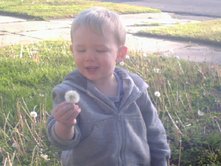Since I am not preaching this week and giving the time to my friends who will share with our kids about their upcoming missions trip to Nicaragua, I just finished the second part of this text,
Jesus For President. It contained much of what I expected. Having discussed the Old Testament in the first part, here we see the New Testament and the life of Jesus. According to the authors, whereas Abraham and Sarah were intended to be the "new family" the disciples were meant to be the "new humanity" (137).
Where Israel had failed to be who they were called to be, Jesus came and embodied this new way of life for us and calls his followers to do the same. The authors spend a lot of time explaining
how Jesus was political which was slightly mundane to someone who has already read John Howard Yoder's "Politics of Jesus." Although when the authors made a joke about reading Yoder's entire text instead of just one sentence they quote, I did laugh.
The author's sense of humor began to come out a bit more in this chapter. I found myself laughing out loud several times, which makes for a fun read. At one point they make emphasis on the fact that a Messiah who could only cry and poop was already a threat to the big, bad Caesar (81).
I also found a unique perspective and fresh way of viewing the temptation of Jesus. According to these authors we should view the first temptation as great irony. They say, "The Bread of Life is starving in the desert" (83) which is a fun play on words. The second thing the devil offers shows Jesus being tempted by the kingly throne. Jesus could have taken it, ended "Herod's genocide and wars" put "social services to set all things right again. And the people were ready for it" (85). But Jesus did not do this, for according to these authors, "governmental power" was not "a coveted position" (85) and they passively imply that it is not the answer for the world's problems. The third temptation calls for something "spectacular" and something that would grab the attention of the people but "Jesus resisted the spectacular" (86-7).
The authors also set up a political campain (much like the ones we see today in the 2008 election) for Jesus that is funny in many ways. They make his campaign slogan "Jubilee!" (88), his plan for economics "sharing, debt cancellation, and land redistribution" (90), and his plan for national security involves "giving away your life" (95). Their word choice is quite entertaining.
One of the points in this section really grabbed my attention and calls for further discussion. The authors talk about how when Jesus asks people to turn the other cheek, he is making sure you look the abuser in the eye and say, "I am a human being, made in the image of God, and you cannot destroy that" (92). This causes me to ask, how would this change our daily lives if we responded to injustice by forcing people to see our humanity and the humanity of the suffering? The authors claim Jesus is saying that if you do this, "it will become increasingly harder for that person to hurt you" (93).
I was really impressed with a theme that ran throughout this portion of the book: Jesus' imagination verses our failure of imagination. According to these authors Jesus breathes "fresh life and imagination" on our failure to be creative (76). Jesus calls us to figure out how to love our enemies in a new, creative way, Jesus calls the preachers to have more imagination to teach and instruct, and true imagination involves
embodying Christ himself. This whole imagination discussion causes me to question where I might also have my own failure of imagination and where Jesus needs to breathe fresh creativity.
It looks like the next section involves Constantine's involvement in Christianity which will certainly be interesting, if nothing else. :)








